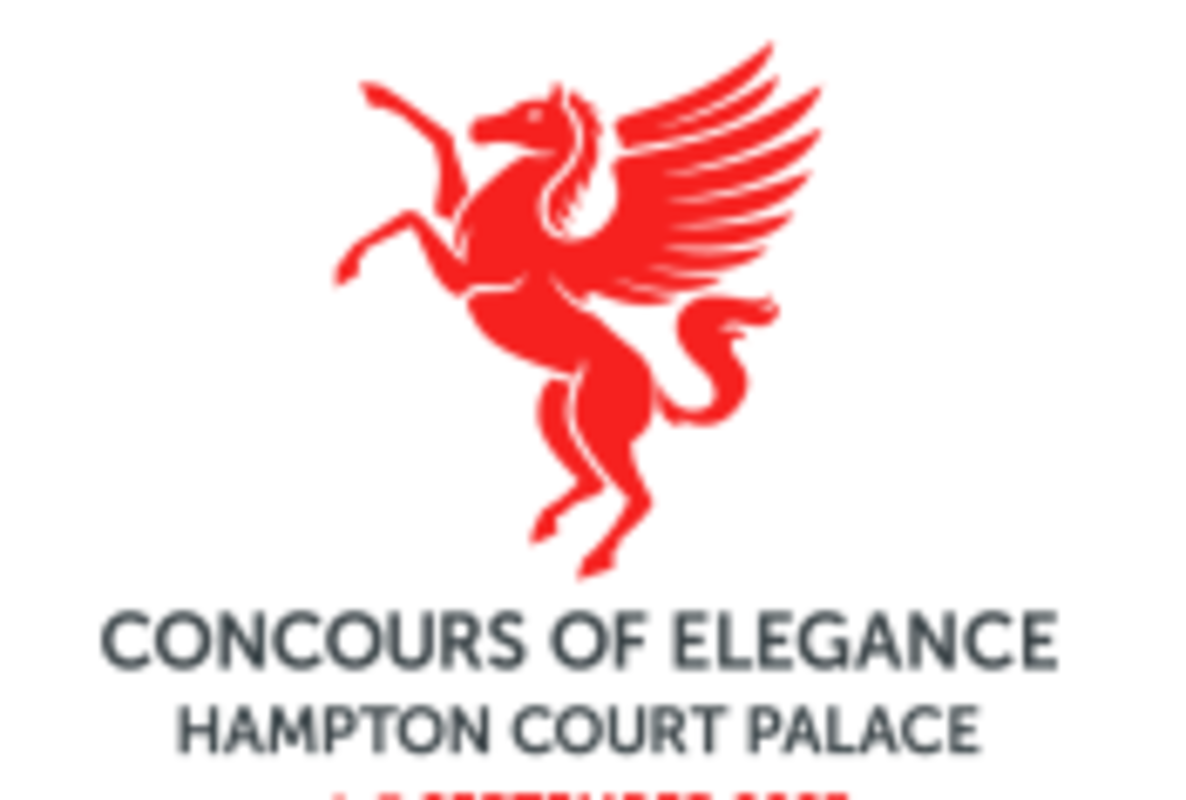Concours of Elegance 2024
London, UK – The Concours of Elegance 2024, which kicks off August 30th, will reunite two priceless, ultra-rare 1930s Talbot Lagos for the first time in decades. The pair of exceptional art deco streamliners – a T150-C SS bodied by Pourtout, and another by Fignoni and Falschi – will return to the limelight as part of a display of 60 the world’s rarest and most spectacular automobiles, assembled in the gardens of Hampton Court Palace in west London from Friday, 30th August, to Sunday 1st September.
The Talbot-Lago Story
The two cars were produced by the sports car brand Talbot-Lago, which was formed when the mercurial Anglo-Italian engineer Anthony Lago turned his hand to rescuing the struggling Automobiles Talbot in the early 1930s. In his effort to resurrect the firm, Lago enlisted the former Fiat and Sunbeam-Talbot-Darracq engineer Walter Becchia to develop a range of glamourous, sporting models, hoping to create machines that combined competition capability with elegant grand touring design.
One of Becchia’s first tasks was to develop a racing version of the company’s existing 3.0-litre six-cylinder T150 engine, one that could propel the brand to the top of the performance car food chain. They created an enlarged 4.0-litre engine, modified with cutting edge features like hemispherical combustion chambers and three Zenith-Stomberg carburettors.
Working with fellow ex-Fiat engineer Vincenzo Bertarione, Becchia they also set about creating an upgraded T150-C ladder frame chassis to house this new engine, with the C standing for ‘Corse’, and, from there, an even more sporting version of T150, one designed with competition in mind. The result was the ‘SS’ – for Super Sports – the basis for the two cars that will be appearing at Hampton Court.
The T150-C SS was the firm’s attempt to build a lightweight, high-performance car to bring the marque to motorsport glory. The special ‘SS’ cars featured a shorter and more nimble 104in chassis with sophisticated independent front suspension, aiding on track performance. Road going versions of the car shared the 4-liter, six-cylinder motor with the competition version, with power sent through a version of an advanced Wilson ‘pre-selector’ gearbox. With 170bhp, the SS was among the fastest cars of its day and could cruise effortlessly at more than 100mph on the open roads of France.
In all, fewer than thirty T150-C SSs were made. The majority were bodied by Figoni and Falaschi, with a series of just three Pourtout Aerocoupés was also completed. These artfully styled machines are now among the most coveted collector cars of all.

Concours of Elegance 2024
1937 Talbot-Lago T150-C SS New York Teardrop
The first car of the pair that will be on show is a 1937 example, the fourth T150-C SS chassis built, and one of only a handful of the desirable ‘New York’ models, considered to be among the most spectacular examples of the iconic ‘Teardrop’ design. It features a stunning coupé body by Paris coachbuilder, Figoni and Falaschi, which was nicknamed the Goutte d’Eau. The literal translation is drop of water, but in English, the design is usually referred to as a Teardrop.
This was the only Teardrop constructed without a sunroof, giving the car an even purer line than its sister cars. To offset ventilation issues, the car was fitted with twin outward-opening windscreens – a design patented by Joseph Figoni that further enhanced the unique character of this car.
In addition to its aesthetic appeal, this car was also a capable competitor on the racetrack, taking 11th place overall at the 1950 Grand Prix in Watkins Glen, with James Floria behind the wheel. The car was also raced at Wilmot Hills and Elkhart Lake. After passing through the hands of Tommy Lee, Brooks Stevens, and Bruce Lustmen, the Teardrop found its way to John W Rich and the JWR Automobile Museum in Pennsylvania. It is now part of The Pearl Collection in Switzerland.

Concours of Elegance 2024
1939 Talbot T150-C SS Aerocoupé by Pourtout
The other car that will grace Hampton Court Palace is a 1939 example of the T150-C SS, an ultra-rare Aerocoupé by Pourtout, one of just three believed to have been created. Produced at the end of the T150-C production run – it combines elegance and supreme performance in a package designed by the famed 1930s automotive stylist Georges Paulin.
Paulin, a dentist turned automotive designer, quickly became one of the most celebrated automotive stylists of the mid-late 1930s, developing a sizeable following among the great and the good of the day. His design for the lithe T150-C SS Aerocoupé endures as one of the finest examples of 1930s automotive craftsmanship.
While standing out as an object of exceptional aesthetic beauty, Aerocoupé chassis 90120 has a particularly fascinating past. Built in the suburbs of Paris by the Pourtout coachworks, it was unfinished when the Second World War broke out. It was only completed in 1944, after being hidden from the Nazis during the wartime occupation of France.
Tragically, designer Paulin, a key figure in the French resistance, did not live to see the car the completed. When World War Two broke out Paulin had become a spy for the British, but was later betrayed by French Vichy elements and arrested by the Nazis in 1941. The British tried to formulate an escape plan, but he refused to accept their offer. Instead, he sacrificed himself in order to save the rest of his Resistance team, and was executed in 1942.
Paulin’s stunning automotive creation went on to have an illustrious motorsport career in the years that followed the war. It was driven by Pierre ‘Pagnibon’ Boncompagni of Ecurie Nice in 16 events between 1950 and 1952, winning 14 of them – a remarkable display of dominance, that underlines the T150-C SS’s exceptional performance capabilities. After changing hands several times, the car was eventually restored to its Ecurie Nice specification and went on to win its class at the Pebble Beach Concours d’Elegance in 2014.
This show-stopping duo will star alongside 60 other concours cars, drawn from leading private collections the world over. Outside of the main Concours display there will be a number of special features, including the Levitt Concours – dedicated to the most passionate female owners – the 30UNDER30, which celebrates enthusiastic owners under 30 years of age and the Club Trophy, which gathers the very best examples of models from the nation’s best car clubs.
Away from the automotive displays, Concours of Elegance 2024 will again be an occasion of pure luxury, with champagne provided by Charles Heidsieck, picnics by Fortnum & Mason, and a collection of art, jewellery and fashion displays. Presenting Partner A. Lange & Söhne will once again showcase some of its most intricate timepieces.
Tickets to the Concours of Elegance are available now at https://concoursofelegance.co.uk/tickets/

About the annual Concours of Elegance:
Established in 2012, the inaugural Concours of Elegance was held within Windsor Castle to mark the diamond jubilee of Her Majesty The Queen’s reign. Organized by Thorough Events, the first Concours of Elegance set a new global benchmark for a classic car concours; winning prestigious awards in the process; unheard of for a ‘start-up’ event in its first year. The second Concours of Elegance was held in 2013 to equal fanfare at the historic Royal Palace of St James in London, with the widely acclaimed third Concours set in the stunning grounds of Hampton Court Palace in September 2014, before heading to the Palace of Holyroodhouse in 2015. Only cars of the highest calibre are invited to the Concours of Elegance, from all over the world, painstakingly selected by the Concours Steering Committee; a respected team of authoritative historic car experts. A key objective of the annual Concours of Elegance is to raise significant sums for charity.
www.concoursofelegance.co.uk

If you like stories like these and other classic car features, check out Old Cars magazine. CLICK HERE to subscribe.
Want a taste of Old Cars magazine first? Sign up for our weekly e-newsletter and get a FREE complimentary digital issue download of our print magazine.



Comments are closed